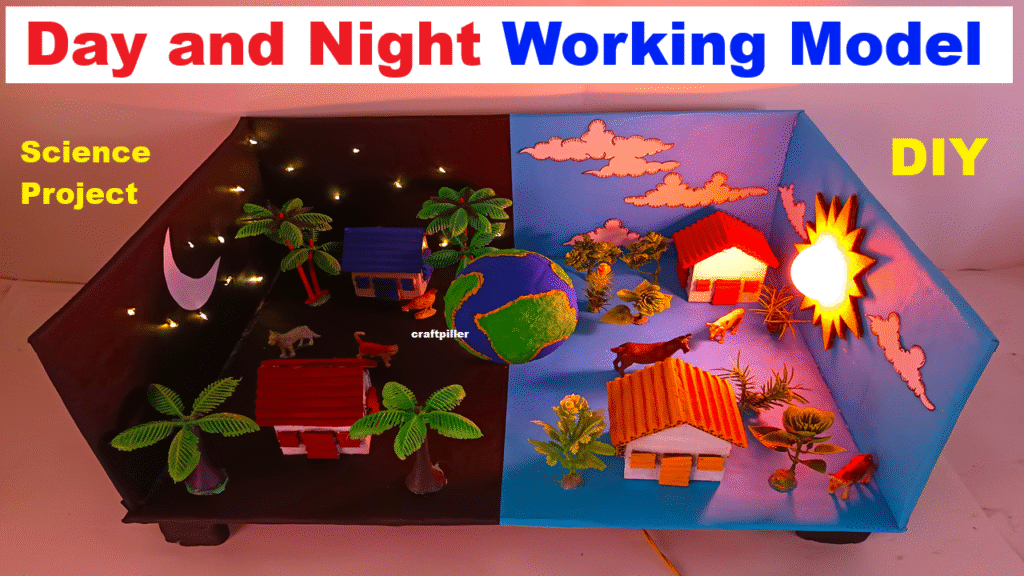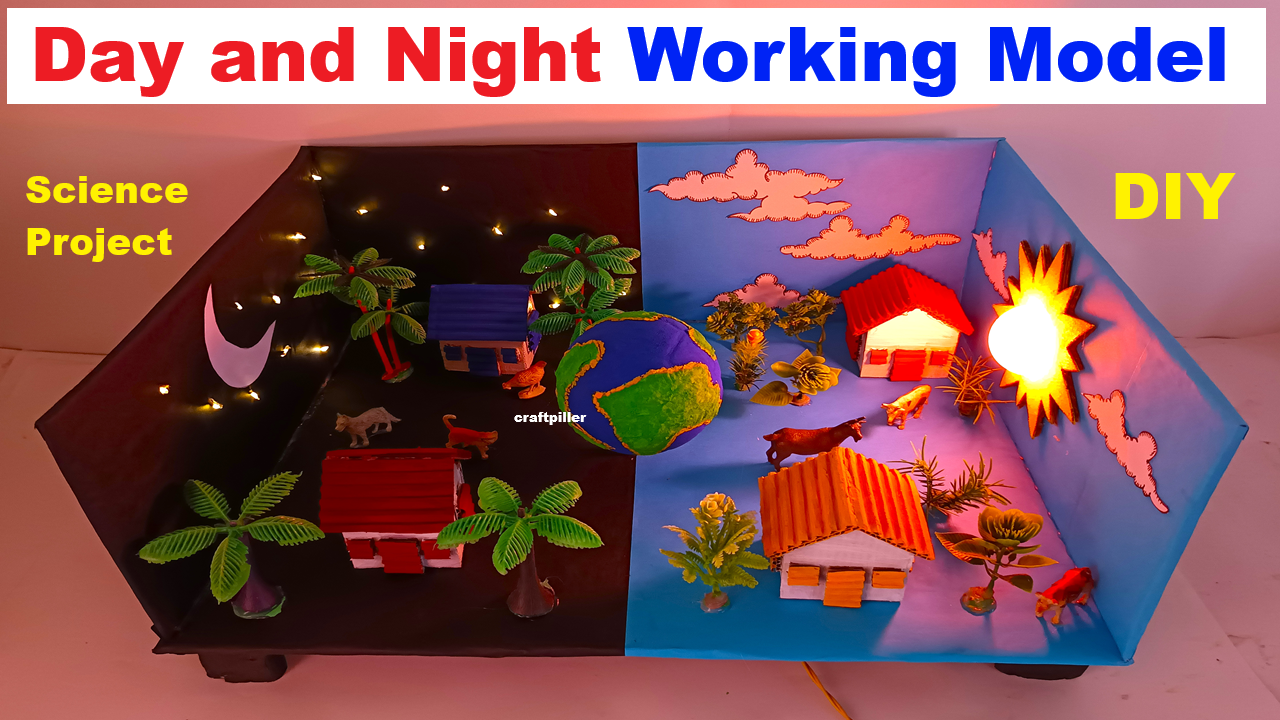Aim / Objective:
To demonstrate how the rotation of the Earth causes day and night, using a simple model with a Sun (LED light) and a rotating Earth ball.

Materials Required:
- Cardboard box (to create a model enclosure)
- Small LED light (to represent the Sun)
- Ball (to represent Earth, can be a foam or plastic ball)
- Slow DC motor (to rotate the Earth)
- Wooden sticks or skewers (to mount the Earth)
- Wires and battery (to power the LED and motor)
- Glue, tape, or adhesive
- Marker or paint (to label Earth, continents, Sun)
Working Principle:
- Day and night occur due to the rotation of the Earth on its axis.
- The side of the Earth facing the Sun experiences daylight, while the opposite side experiences night.
- The LED light represents the Sun, and the slow motor rotates the Earth ball, showing the transition between day and night.
Procedure:
- Fix the LED light inside the cardboard box to act as the Sun.
- Mount the Earth ball on a stick attached to the slow motor.
- Place the motor inside the box so that the Earth rotates around its axis when powered.
- Connect the LED and motor to a battery.
- Turn ON the motor to rotate the Earth slowly.
- Observe how different parts of the Earth face the Sun and then move into shadow, showing day and night.
Observation:
- As the Earth rotates, the illuminated portion changes, representing daytime.
- The side opposite to the LED light represents nighttime.
- This clearly demonstrates the Earth’s rotation and its effect on day and night.
Conclusion:
The model effectively shows that day and night are caused by the rotation of the Earth on its axis.
It provides a visual and interactive way for students to understand how the Sun illuminates only half of the Earth at any time, creating alternating periods of day and night.

